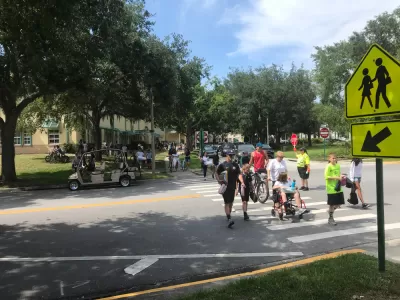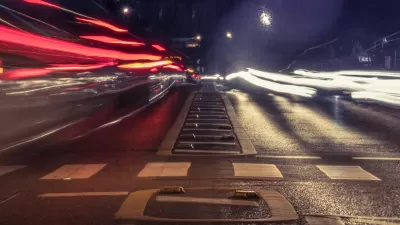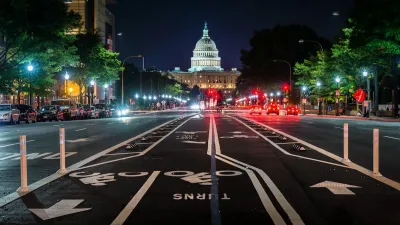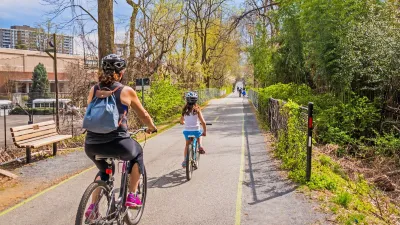While road funding still dominates the newly passed infrastructure bill, pedestrian advocates praise the bill's modest investment in active transportation and road safety.

Streetsblog's Kea Wilson describes the "modest but potentially powerful" policies that support active transportation in the new Infrastructure Investment and Jobs Act. Despite the high ratio of road to transit funding, the bill also includes support for programs that make walking and biking safer and more accessible, such as $1.44 billion a year for "transportation alternatives" and a requirement for states to allocate 15 percent of Highway Safety Improvement Program funds to protecting vulnerable road users.
Of course, those modest wins for active road users were dwarfed by investments into roadway infrastructure, which promises to widen roads for drivers at the same time as cities break ground on all those new mobility lanes. The trails community, in particularly, was disappointed by a new rule which will subject much of the country’s off-street biking and walking networks to the annual appropriations process, rather than guaranteeing its own dedicated fund.
The bill also includes a package of new mandates meant to reduce pedestrian deaths, such as "still-to-be-determined impaired driving technology on all new cars" and updated headlamp standards.
Wilson details the other provisions in the bill, writing that "[d]espite the disappointments in the latest infrastructure bill, advocates remain cautiously optimistic that it will at least lower America’s roadway death toll a bit — especially if the most important measures in its companion bill make their way through the gauntlet of intraparty negotiations."
FULL STORY: ‘Small Victories’ For Vulnerable Road Users In Infrastructure Bill

Alabama: Trump Terminates Settlements for Black Communities Harmed By Raw Sewage
Trump deemed the landmark civil rights agreement “illegal DEI and environmental justice policy.”

Study: Maui’s Plan to Convert Vacation Rentals to Long-Term Housing Could Cause Nearly $1 Billion Economic Loss
The plan would reduce visitor accommodation by 25% resulting in 1,900 jobs lost.

Planetizen Federal Action Tracker
A weekly monitor of how Trump’s orders and actions are impacting planners and planning in America.

Waymo Gets Permission to Map SF’s Market Street
If allowed to operate on the traffic-restricted street, Waymo’s autonomous taxis would have a leg up over ride-hailing competitors — and counter the city’s efforts to grow bike and pedestrian on the thoroughfare.

Parklet Symposium Highlights the Success of Shared Spaces
Parklets got a boost during the Covid-19 pandemic, when the concept was translated to outdoor dining programs that offered restaurants a lifeline during the shutdown.

Federal Homelessness Agency Places Entire Staff on Leave
The U.S. Interagency Council on Homelessness is the only federal agency dedicated to preventing and ending homelessness.
Urban Design for Planners 1: Software Tools
This six-course series explores essential urban design concepts using open source software and equips planners with the tools they need to participate fully in the urban design process.
Planning for Universal Design
Learn the tools for implementing Universal Design in planning regulations.
Caltrans
Smith Gee Studio
Institute for Housing and Urban Development Studies (IHS)
City of Grandview
Harvard GSD Executive Education
Toledo-Lucas County Plan Commissions
Salt Lake City
NYU Wagner Graduate School of Public Service





























